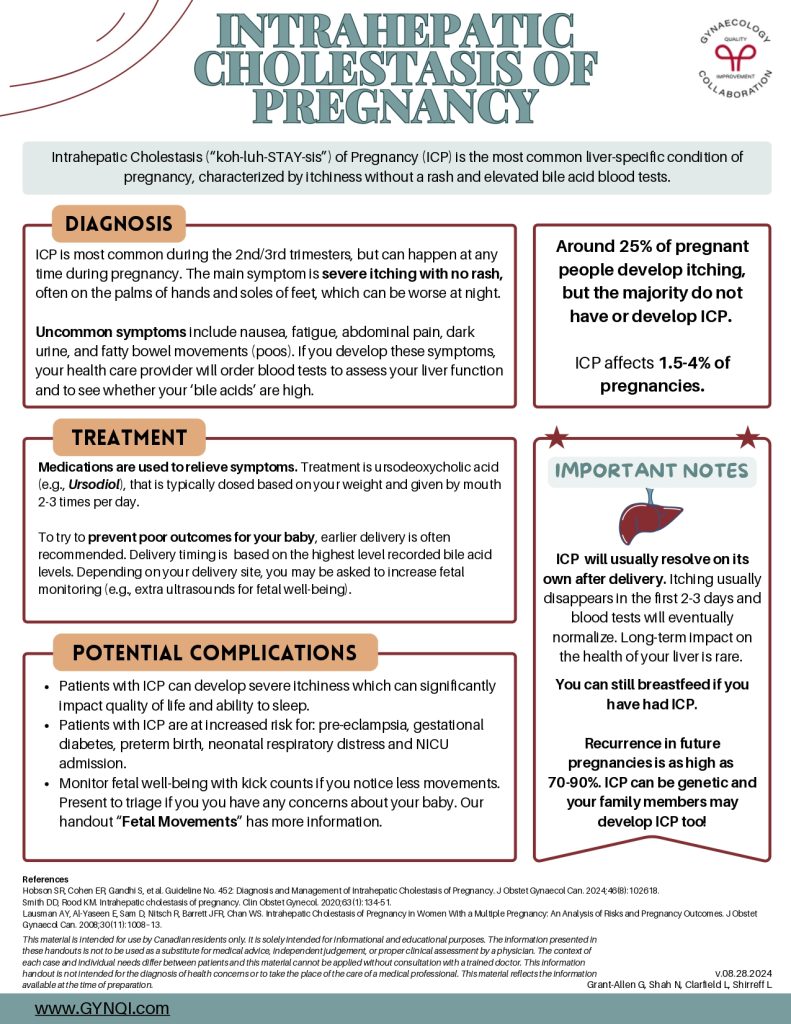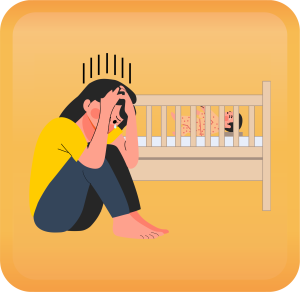
Intrahepatic Cholestasis Of Pregnancy
Intrahepatic Cholestasis (“koh-luh-STAY-sis”) of Pregnancy (ICP) is the most common liver-specific condition of pregnancy, characterized by itchiness without a rash and elevated bile acid blood tests.
Diagnosis
ICP is most common during the 2nd/3rd trimesters, but can happen at any time during pregnancy. The main symptom is severe itching with no rash, often on the palms of hands and soles of feet, which can be worse at night.
Uncommon symptoms include nausea, fatigue, abdominal pain, dark urine, and fatty bowel movements (poos). If you develop these symptoms, your health care provider will order blood tests to assess your liver function and to see whether your ‘bile acids’ are high.
Around 25% of pregnant people develop itching, but the majority do not have or develop ICP. ICP affects 1.5-4% of pregnancies.
Treatment
Medications are used to relieve symptoms. Treatment is ursodeoxycholic acid (e.g., Ursodiol), that is typically dosed based on your weight and given by mouth 2-3 times per day.
To try to prevent poor outcomes for your baby, earlier delivery is often recommended. Delivery timing is based on the highest level recorded bile acid levels. Depending on your delivery site, you may be asked to increase fetal monitoring (e.g., extra ultrasounds for fetal well-being).
Potential Complications
- Patients with ICP can develop severe itchiness which can significantly impact quality of life and ability to sleep.
- Patients with ICP are at increased risk for: pre-eclampsia, gestational diabetes, preterm birth, neonatal respiratory distress and NICU admission.
- Monitor fetal well-being with kick counts if you notice less movements. Present to triage if you have any concerns about your baby. Our handout “Fetal Movements” has more information.
Important Notes
ICP will usually resolve on its own after delivery. Itching usually disappears in the first 2-3 days and blood tests will eventually normalize. Long-term impact on the health of your liver is rare.
You can still breastfeed if you have had ICP.
Recurrence in future pregnancies is as high as 70-90%. ICP can be genetic and your family members may develop ICP too!



